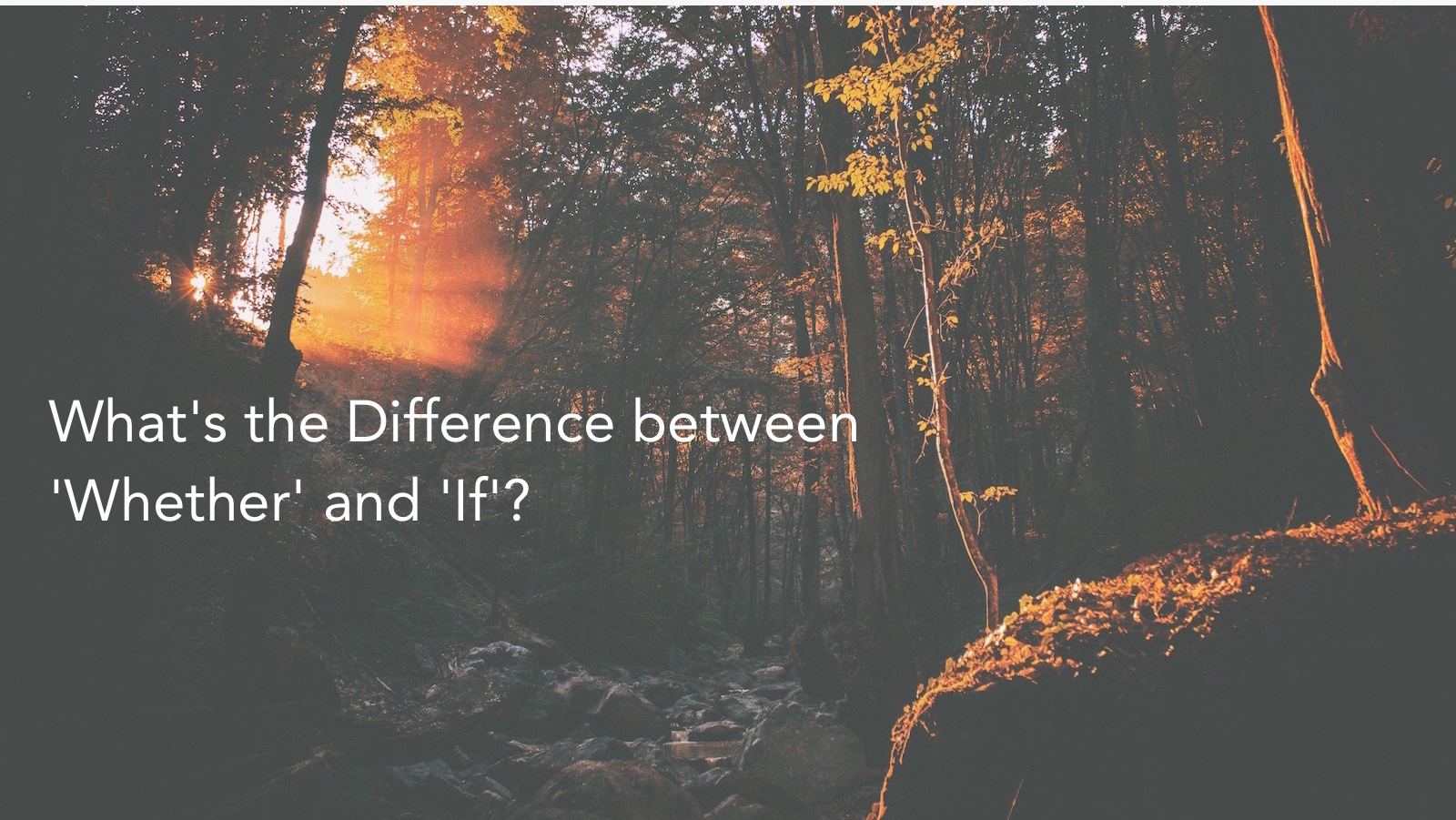What’s the Difference between “Whether” and “If”?

If you think that ‘whether’ and ‘if’ are ALWAYS interchangeable, then many of us do. But, actually, they have different functions. These two words have been used interchangeably and mistakenly far too many times.
How to Use IF
1) ALWAYS use IF for your conditional sentence. Conditionals show that event B will happen if event A happens first. So, if A happens, then B will follow.
–Let me know if you’re coming.
The condition is, “IF you’re coming.” The result is, “let me know.”
(If NOT coming, don’t let me know.)
–Give me a call if there are any issues.
The condition is, “IF there are any issues.” The result is, “give me a call.”
(If NO issues, don’t give me a call because that means everything is going well.)
–I will go to the party if you will.
The condition is, “IF you will go to the party.” The result is, “I will go.”
(If you’re NOT going, then it follows that I will not attend the party).
–I will come to visit if you want me to.
(If you want it, I will do it. If you don’t want it, I will not do it.)
2) ‘IF’ can also be used for polite requests.
–I would appreciate it if you could wait a little bit.
–Would you mind if I opened the window?
–Is it okay if I leave the door open?
How to use WHETHER
The functions of whether are ALWAYS the following:
1) It presents options or choices.
–Let me know whether it rains in your area or not.
(This means, if it rains, let me know. If it doesn’t rain, let me know.)
–I’m not sure whether to have tea or iced coffee.
–I asked the bride whether she wants the pink centerpiece or the yellow bouquet.
–I asked Bob whether he’ll come or not.
–I’m not quite sure whether the inspection is on Wednesday or Thursday.
2) It is used after prepositions.
–I’m not interested in whether he’s happy with my performance or not.
–My parents argued about whether to bring along my cousins to our picnic or not.
3) Use whether with two “to” infinitives in parallel forms.
–I don’t know whether to wait or to leave.
–I’m not sure whether to sing or to dance.
4. It can mean “regardless”. So, it doesn’t matter what happens, or REGARDLESS of the situation, here is what WILL happen. In this context, it is better to use “or not.”
–I’m studying the Japanese language, whether it’s difficult or not.
(This means, if it’s easy, I will study the language. If it’s difficult, I will study it. It doesn’t matter.)
–I’m going to see Romeo tonight whether father approves or not.
–I’m coming over whether you like it or not.
However, in SOME situations, ‘whether’ and ‘if’ means the SAME. This is when they are used as a noun clause or the subject/object of the sentence.
Examples.
Do you know if Dan is coming?
Do you know whether Dan is coming?
“Do you know…” what? What is the subject here?
Answer: IF Dan is coming, or WHETHER Dan is coming.
So, to avoid making mistakes, especially in writing English, use ‘whether’ for alternatives or to mean “regardless”, and use ‘if’ for conditionals.
TRY THIS
1) Let the attendants know _______ (if, whether) you need extra blankets and towels.
2) Do you know _______ (if, whether) Karen took the 6:00 train?
3) We will go to El Nido, Palawan _______ (if, whether) you like it or not.
4) ___________ (If, Whether) morning is a better time for you than an afternoon, we will meet then.
5) ___________(If, Whether) you’re not sure which car to buy, don’t buy either.
For more practice of this lesson, please join LingualBox classes. Our teachers will help you!
